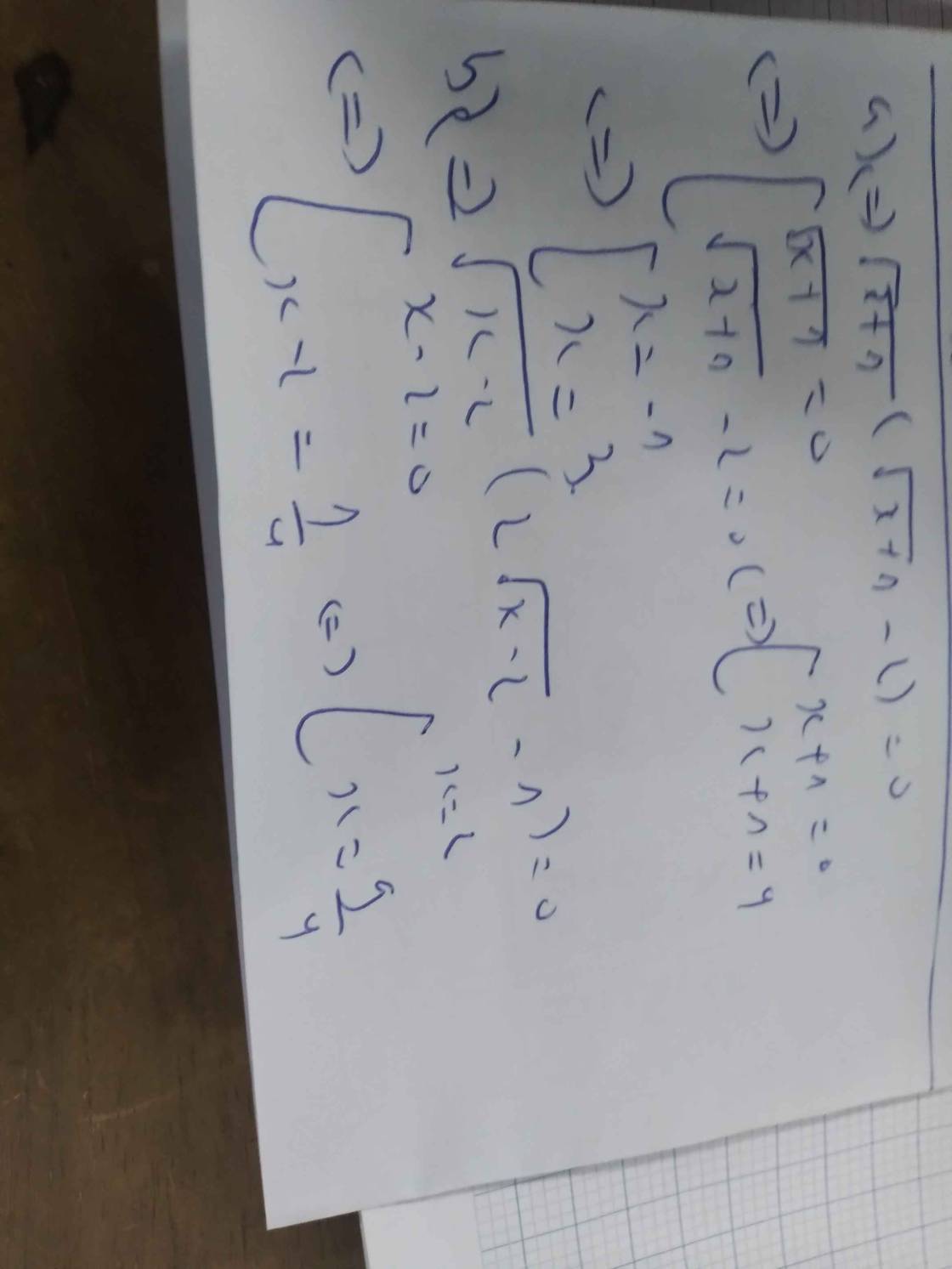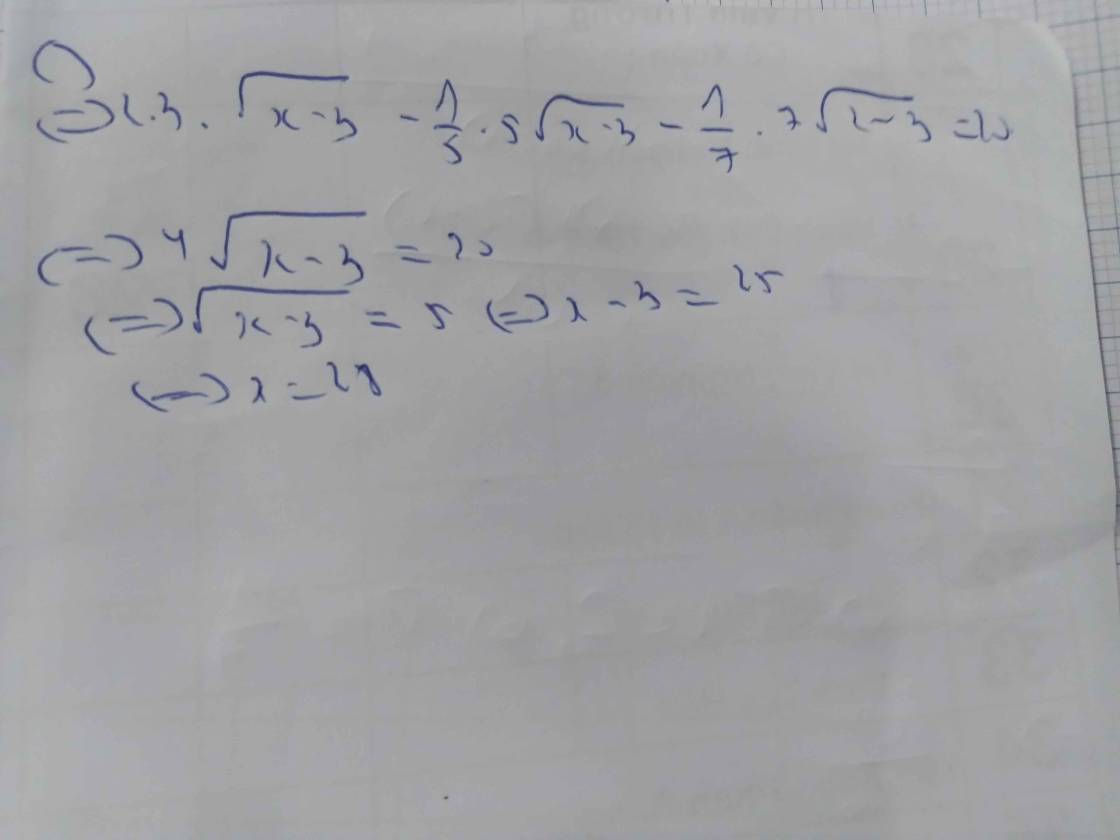Với \(x>0\), tìm min \(2x+\dfrac{27}{x^2}\)
Hãy nhập câu hỏi của bạn vào đây, nếu là tài khoản VIP, bạn sẽ được ưu tiên trả lời.


1.
Đặt \(x+y=a\Rightarrow y=a-x\)
\(\Rightarrow x^2+2x\left(a-x\right)-14\left(a-x\right)-10x+3\left(a-x\right)^2+27=0\)
\(\Leftrightarrow2x^2-4\left(a+1\right)x+3a^2-10a+27=0\)
\(\Delta'=4\left(a+1\right)^2-2\left(3a^2-10a+27\right)\ge0\)
\(\Leftrightarrow-a^2+14a-25\ge0\)
\(\Rightarrow7-2\sqrt{6}\le a\le7+2\sqrt{6}\)
\(\Rightarrow-10-2\sqrt{6}\le P\le-10+2\sqrt{6}\)
2. Chắc đề là \(a;b>0\) (đảm bảo mẫu dương) chứ ko phải \(a.b>4\)
\(M\ge\dfrac{\left(a+b\right)^2}{a+b-8}=\dfrac{\left(a+b-8+8\right)^2}{a+b-8}=\dfrac{\left(a+b-8\right)^2+16\left(a+b-8\right)+64}{a+b-8}\)
\(M\ge a+b-8+\dfrac{64}{a+b-8}+16\ge2\sqrt{\dfrac{64\left(a+b-8\right)}{a+b-8}}+16=32\)
Dấu "=" xảy ra khi \(a=b=8\)

\(P=\left(\dfrac{x}{2}+\dfrac{9}{2x}\right)+\left(\dfrac{y}{8}+\dfrac{2}{y}\right)+\left(\dfrac{z}{4}+\dfrac{9}{z}\right)+\dfrac{1}{8}\left(4x+7z+6z\right)\)
\(P\ge2\sqrt{\dfrac{9x}{4x}}+2\sqrt{\dfrac{2y}{8y}}+2\sqrt{\dfrac{9z}{4z}}+\dfrac{1}{8}.76=\dfrac{33}{2}\)
Dấu "=" xảy ra tại \(\left(x;y;z\right)=\left(3;4;6\right)\)

\(2x-3\sqrt{x}+2=2\left(\sqrt{x}-\dfrac{3}{4}\right)^2+\dfrac{7}{8}\ge\dfrac{7}{8}\)
\(\Rightarrow\dfrac{1}{2x-3\sqrt{x}+2}\le\dfrac{1}{\dfrac{7}{8}}=\dfrac{8}{7}\)
\(\Rightarrow\dfrac{-1}{2x-3\sqrt{x}+2}\ge-\dfrac{8}{7}\)
\(A_{min}=-\dfrac{8}{7}\) khi \(x=\dfrac{9}{16}\)
Ta thấy:\(2x-3\sqrt{x}+2=2\left(x-\dfrac{3}{2}\sqrt{x}+1\right)\)\(=2\left(x-2.\dfrac{3}{4}\sqrt{x}+\dfrac{9}{16}+\dfrac{7}{16}\right)=2\left(\sqrt{x}-\dfrac{3}{4}\right)^2+\dfrac{7}{8}\)
Vì \(2\left(\sqrt{x}-\dfrac{3}{4}\right)^2\ge0\) với \(\forall x\ge0\) nên \(2\left(\sqrt{x}-\dfrac{3}{4}\right)^2+\dfrac{7}{8}\ge\dfrac{7}{8}\)với \(\forall x\ge0\)
\(\Rightarrow\dfrac{1}{2x-3\sqrt{x}+2}\le\dfrac{7}{8}\)với \(\forall x\ge0\)
\(\Rightarrow A=\dfrac{-1}{2x-3\sqrt{x}+2}\ge-\dfrac{7}{8}\)với \(\forall x\ge0\)
Dấu "=" xảy ra khi và chỉ khi \(\sqrt{x}-\dfrac{3}{4}=0\Leftrightarrow\sqrt{x}=\dfrac{3}{4}\Leftrightarrow x=\dfrac{9}{16}\)
xin lỗi nha bài này tui gửi nhầm lên đây nên đừng nói tui tự làm tự giải kiếm điểm nhá

Vì 3 ≤ x ≤ 7 => x - 3 ≥ 0; 7 - x ≥ 0
=> C ≥ 0
Dấu = xảy ra khi và chỉ khi x = 3 hoặc x = 7
C = (x - 3)(7 - x) ≤ \(\dfrac{1}{4}\)(x - 3 + 7 - x)2 = \(\dfrac{1}{4}\).42 = 4
Dấu "=" xảy ra <=> x - 3 = 7 - x <=> x = 5
\(G=\left(x^2+\sqrt[3]{3}\right)+\left(\dfrac{2}{x^3}+\dfrac{2}{\sqrt{3}}+\dfrac{2}{\sqrt{3}}\right)-\sqrt[3]{3}-\dfrac{4}{\sqrt{3}}\ge2\sqrt{x^2.\sqrt[3]{3}}+3\sqrt[3]{\dfrac{2}{x^3}.\dfrac{2}{\sqrt{3}}.\dfrac{2}{\sqrt{3}}}-\sqrt[3]{3}-\dfrac{4}{\sqrt{3}}=2\sqrt[6]{3}.x+\dfrac{6}{\sqrt[3]{3}x}-\sqrt[3]{3}-\dfrac{4}{\sqrt{3}}\ge2\sqrt{2\sqrt[6]{3}.x.\dfrac{6}{\sqrt[3]{3}x}}-\sqrt[3]{3}-\dfrac{4}{\sqrt{3}}=2\sqrt{\dfrac{12\sqrt[6]{3}}{\sqrt[3]{3}}}-\sqrt[3]{3}-\dfrac{4}{\sqrt{3}}\)
Dấu "=" xảy ra khi và chỉ khi \(x=\sqrt[6]{3}\)

\(B=\dfrac{x^2+x}{x^2+x+1}=\dfrac{3x^2+3x}{3\left(x^2+x+1\right)}=\dfrac{-\left(x^2+x+1\right)+4x^2+4x+1}{3\left(x^2+x+1\right)}\)
\(=-\dfrac{1}{3}+\dfrac{\left(2x+1\right)^2}{3\left(x+\dfrac{1}{2}\right)^2+\dfrac{9}{4}}\ge-\dfrac{1}{3}\)
\(B_{min}=-\dfrac{1}{3}\) khi \(x=-\dfrac{1}{2}\)

`P=x^3/(x+y)+y^3/(y+z)+z^3/(z+x)`
`=x^4/(x^2+xy)+y^4/(y^2+yz)+z^4/(z^2+zx)`
Ad bđt cosi-swart:
`P>=(x^2+y^2+z^2)^2/(x^2+y^2+z^2+xy+yz+zx)`
Mà `xy+yz+zx<=x^2+y^2+z^2)`
`=>P>=(x^2+y^2+z^2)^2/(2(x^2+y^2+z^2))=(x^2+y^2+z^2)/2=3/2`
Dấu "=" xảy ra khi `x=y=z=1`
`Q=(x^3+y^3)/(x+2y)+(y^3+z^3)/(y+2z)+(z^3+x^3)/(z+2x)`
`Q=(x^3/(x+2y)+y^3/(y+2z)+z^3/(z+2x))+(y^3/(x+2y)+z^3/(y+2z)+x^3/(z+2x))`
`Q=(x^4/(x^2+2xy)+y^4/(y^2+2yz)+z^4/(z^2+2zx))+(y^4/(xy+2y^2)+z^4/(yz+2z^4)+x^4/(xz+2x^2))`
Áp dụng BĐT cosi-swart ta có:
`Q>=(x^2+y^2+z^2)^2/(x^2+y^2+z^2+2xy+2yz+2zx)+(x^2+y^2+z^2)^2/(2(x^2+y^2+z^2)+xy+yz+zx))`
Mà`xy+yz+zx<=x^2+y^2+z^2`
`=>Q>=(x^2+y^2+z^2)^2/(3(x^2+y^2+z^2))+(x^2+y^2+z^2)^2/(3(x^2+y^2+z^2))=(2(x^2+y^2+z^2)^2)/(3(x^2+y^2+z^2))=(2(x^2+y^2+z^2))/3=2`
Dấu "=" xảy ra khi `x=y=z=1.`

\(P=\dfrac{1}{\left(x+1\right)^2+5}\le\dfrac{1}{5}\)
\(P_{max}=\dfrac{1}{5}\) khi \(x+1=0\Rightarrow x=-1\)
\(Q=\dfrac{x^2+x+1}{x^2+2x+1}=\dfrac{4x^2+4x+4}{4\left(x+1\right)^2}=\dfrac{3\left(x^2+2x+1\right)+x^2-2x+1}{4\left(x+1\right)^2}=\dfrac{3}{4}+\dfrac{\left(x-1\right)^2}{4\left(x+1\right)^2}\)
\(Q_{min}=\dfrac{3}{4}\) khi \(x-1=0\Rightarrow x=1\)
1: \(x^2+2x+6=x^2+2x+1+5=\left(x+1\right)^2+5>=5\forall x\)
=>\(P=\dfrac{1}{x^2+2x+6}< =\dfrac{1}{5}\forall x\)
Dấu '=' xảy ra khi x+1=0
=>x=-1

\(a)ĐK:x\ge-1\\ \Leftrightarrow x+1=2\sqrt{x+1}\\ \Leftrightarrow x^2+2x+1=4x+4\\ \Leftrightarrow x^2+2x-4x+1-4=0\\ \Leftrightarrow x^2-2x-3=0\\ \Leftrightarrow\left[{}\begin{matrix}x=3\left(tm\right)\\x=-1\left(tm\right)\end{matrix}\right.\)
Vậy \(S=\left\{3;-1\right\}\)
\(b)ĐK:x\ge2\\ \Leftrightarrow2x-4=\sqrt{x-2}\\ \Leftrightarrow4x^2-16x+16=x-2\\ \Leftrightarrow4x^2-16x-x+16+2=0\\ \Leftrightarrow4x^2-17x+18=0\\ \Leftrightarrow\left[{}\begin{matrix}x=\dfrac{9}{4}\left(tm\right)\\x=2\left(tm\right)\end{matrix}\right.\)
Vậy \(S=\left\{\dfrac{9}{4};2\right\}\)
\(c)ĐK:x\ge3\\ \Leftrightarrow2\sqrt{9\left(x-3\right)}-\dfrac{1}{5}\sqrt{25\left(x-3\right)}-\dfrac{1}{7}\sqrt{49\left(x-3\right)}=20\\ \Leftrightarrow2.3\sqrt{x-3}-\dfrac{1}{5}\cdot5\sqrt{x-3}-\dfrac{1}{7}\cdot7\sqrt{x-3}=20\\ \Leftrightarrow6\sqrt{x-3}-\sqrt{x-3}-\sqrt{x-3}=20\\ \Leftrightarrow4\sqrt{x-3}=20\\ \Leftrightarrow\sqrt{x-3}=5\\ \Leftrightarrow x-3=25\\ \Leftrightarrow x=25+3\\ \Leftrightarrow x=28\left(tm\right)\)
Vậy \(S=\left\{28\right\}\)

1. 1/x + 2/1-x = (1/x - 1) + (2/1-x - 2) + 3
= 1-x/x + (2-2(1-x))/1-x + 3
= 1-x/x + 2x/1-x + 3 >= 2√2 + 3
Dấu "=" xảy ra khi x =√2 - 1
2. a = √z-1, b = √x-2, c = √y-3 (a,b,c >=0)
=> P = √z-1 / z + √x-2 / x + √y-3 / y
= a/a^2+1 + b/b^2+2 + c/c^2+3
a^2+1 >= 2a => a/a^2+1 <= 1/2
b^2+2 >= 2√2 b => b/b^2+2 <= 1/2√2
c^2+3 >= 2√3 c => c/c^2+3 <= 1/2√3
=> P <= 1/2 + 1/2√2 + 1/2√3
Dấu = xảy ra khi a^2 = 1, b^2 = 2, c^2 =3
<=> z-1 = 1, x-2 = 2, y-3 = 3
<=> x=4, y=6, z=2


\(P=2x+\dfrac{27}{x^2}=x+x+\dfrac{27}{x^2}\ge3\sqrt[3]{\dfrac{27x^2}{x^2}}=9\)
\(P_{min}=9\) khi \(x=\dfrac{27}{x^2}\Leftrightarrow x=3\)